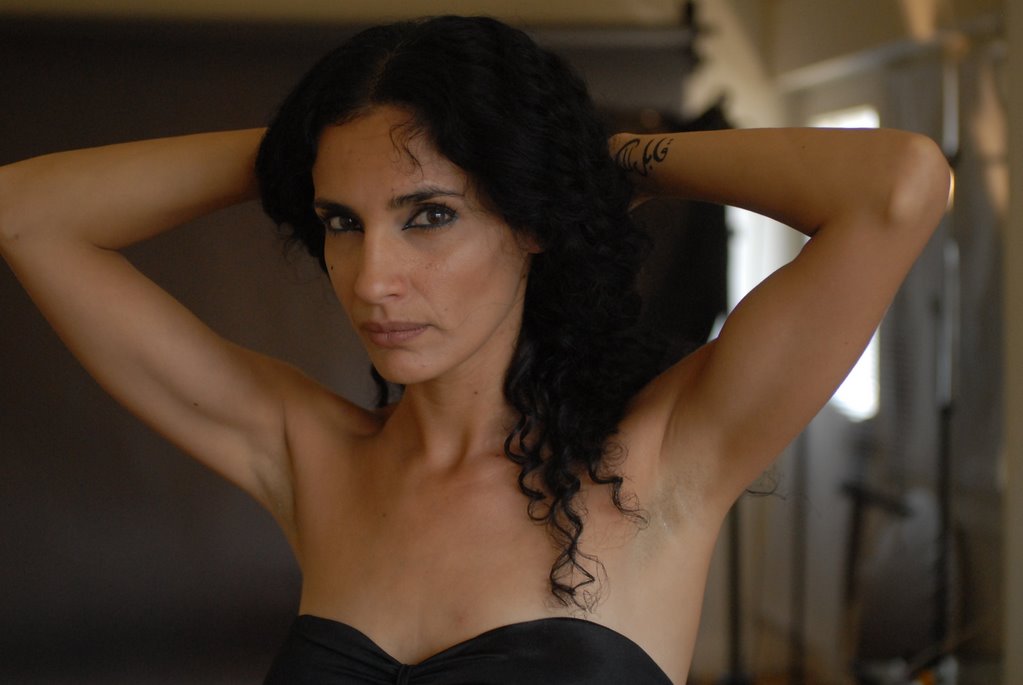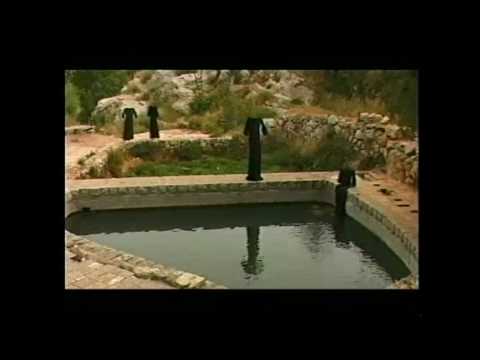
Laura van Rij (LR): What is your connection to Lifta?
Raida Adon (RA): When I was a child the Palestinians didn´t talk about 1948, they were afraid. But you grow up and you must develop your own viewpoint. When I was going to Bezalel Academy of Art in Jerusalem I saw the village of Lifta every time from the bus. I asked the people in the bus what it was, because it was so beautiful. I realised then that I had to do something there. When I went there I felt a lot of energy, I listened to the silence and the wind and it was like the buildings were talking to me. I wanted to scream, but my scream was the wind there. I decided to do a video with black dresses, empty dresses in Lifta (the Fasatine video). I realised that the houses and the dresses are the same. The houses don´t have people in them and the dress doesn´t contain a body.
LR: How did people react when they saw you filming there?
RA: There were mainly religious people there. They helped me to put the dresses in the pool; I know they think the water in the pool is holy. They didn´t know what I was doing, they didn´t ask. They just helped me, it was amazing. For me it was okay, I am not a political artist, I just do what I see and feel.
LR: To me Fasatine is quite a political work.
RA: I don´t know. It could be, but it´s mainly about the place. Also the Jewish people could look at it and feel sadness from their side. It´s a crazy country.
LR: Is there a place that you specifically like there?
RA: I like all the houses, I could stay there. I think they need to bring people to live in Lifta. I don´t think they can be Jewish people, it´s too complicated. It´s something… it´s there to let us remember what happened. I didn´t take anything with me from Lifta, it doesn't belong to me.
LR: Did your image of Lifta change?
RA: Lifta was really important for my work. I imagined that if the dresses were talking, what kind of story they would tell. I created characters for the dresses. One dress, I gave her the character of Aisha. I imagined Aisha as living in another village, being married and having two sons. But she was from Lifta, and she could not go back to her home. Some of the days her husband wanted to make love to her but she couldn´t. She told him that if he wanted her body he had to get her back to her home, her land. Without being on her land she couldn´t feel her body. When I take the dress off it is like getting out of Aisha´s skin.
LR: There are plans to develop Lifta, to build new houses there.
RA: They want to build in Lifta so they don´t have to remember what they did. They have to talk to the Palestinians, to recognise that they were not good to us. To erase everything is not the solution. Why do I need to feel like a stranger in my country?I think they can't build there. A lot of people won´t let them, Palestinian and Jewish. It´s a beautiful place, and what do they want to build? Villa´s, a mall? So people will go down to Lifta to go shopping? They are crazy.
LR: What would you like to happen in Lifta?
RA: I want to… I want Lifta to stay. The Palestinians can´t come back, they won´t let them. But I also don´t want it to be like a museum. But I can´t choose anything. I can do my projects and at least that will stay. People will see it, and it will be like a memory. I am alive and I´m Palestinian and that is also a memory. They will see me, I´m here, they can´t erase me.

מתוך הוידיאו פסאתין של ראידה אדון בליפתא / From the video Fasatine by Raida Adon at Lifta

